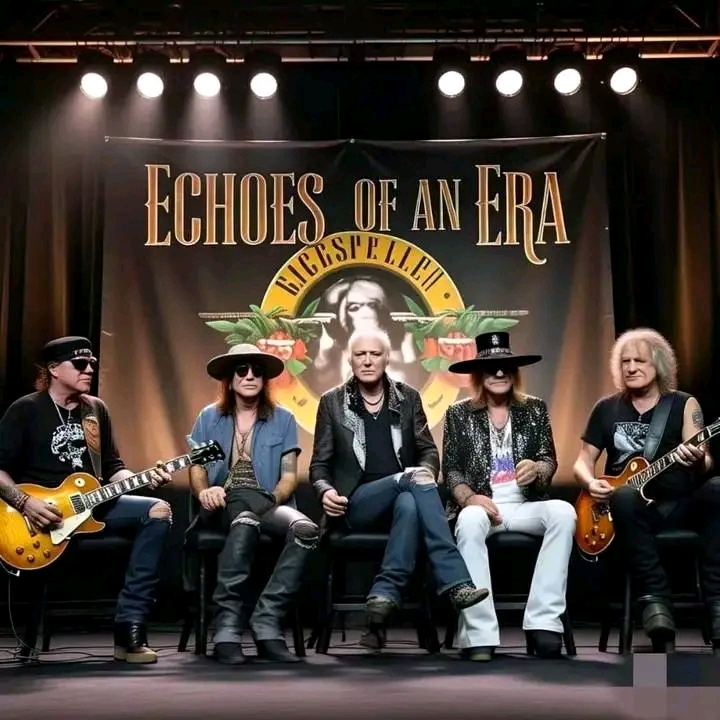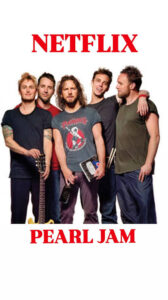BREAKING NEWS: Progressive Rock Resurgence – New Wave of Talent Brings Fresh Energy to the Genre…..
BREAKING NEWS: Progressive Rock Resurgence – New Wave of Talent Brings Fresh Energy to the Genre…..
In a surprising yet highly anticipated development, progressive rock, a genre known for its intricate compositions and experimental soundscapes, is experiencing a powerful resurgence. Following a period of relative quiet, a new wave of talent has emerged to reinvigorate the progressive rock scene, captivating both longtime fans and a new generation of listeners. As veteran acts continue to release innovative material, a crop of younger, boundary-pushing artists is bringing fresh energy and creativity to the genre, signaling that progressive rock’s legacy is alive and well.
The Roots of Progressive Rock: A Brief Overview
Before diving into the new wave of progressive rock talent, it’s essential to understand the origins and evolution of the genre. Progressive rock, often referred to as “prog rock,” began to take shape in the late 1960s and early 1970s. Bands like Pink Floyd, Yes, Genesis, and King Crimson were at the forefront of a musical revolution that blended rock with classical, jazz, and experimental influences. Prog rock is known for its emphasis on complex song structures, technical musicianship, concept albums, and expansive musical landscapes that often tell a story.
For decades, progressive rock thrived in the music scene, producing iconic albums that have become milestones in the history of rock music. However, as the music industry shifted in the 1980s and 1990s, progressive rock saw a decline in mainstream popularity. Many bands broke up or transitioned to different sounds, and the genre was pushed to the fringes. Despite this, prog rock maintained a loyal fan base, with bands continuing to experiment and innovate, albeit in smaller circles.
In recent years, however, something remarkable has happened. Progressive rock has experienced a renaissance, and a new generation of musicians is stepping up to carry the torch forward.
The Rise of New Talent: A Fresh Perspective on Progressive Rock
The progressive rock scene has always been about pushing boundaries, and today’s young artists are no exception. Over the past few years, a new wave of talent has emerged from various corners of the globe, bringing with them fresh ideas, modern production techniques, and an eclectic blend of influences. These musicians are not simply revisiting the classic sounds of the 1970s but are expanding on them, fusing elements from metal, electronic music, jazz, and even ambient soundscapes.
One of the most notable trends in this new era of progressive rock is the increasing presence of genre-blending. Many new bands incorporate electronic elements, which lend a more contemporary feel to the often complex arrangements that define prog rock. Artists are using digital technology to create immersive sound worlds that weren’t possible in the genre’s early days. As a result, progressive rock is finding its place in the modern musical landscape, appealing to listeners who enjoy both the technical complexity of the genre and the accessibility of contemporary production.
Among the leaders in this new wave of progressive rock is the band Haken. Emerging from the UK in the late 2000s, Haken quickly gained a reputation for their eclectic sound, combining elements of classic prog rock with modern metal and electronic music. Albums like The Mountain (2013) and Vector (2018) have solidified the band’s place at the forefront of the genre’s resurgence. Haken’s ability to blend intricate time signatures, soaring melodies, and diverse textures makes them a defining force in progressive rock’s new era.
Another exciting group leading the charge is the Canadian band Leprous. Known for their emotionally charged performances and a unique blend of progressive metal and rock, Leprous has crafted a sound that defies traditional prog rock boundaries. Their 2021 album Aphelion demonstrated a bold departure from their earlier, heavier material, incorporating elements of symphonic arrangements, jazz, and even pop into their songs. The band’s willingness to experiment with new sounds while retaining their technical prowess has earned them critical acclaim and a growing fanbase worldwide.
Meanwhile, the band Riverside from Poland has also been gaining international attention. Known for their atmospheric and melodic approach to progressive rock, Riverside combines influences from classic prog with more modern sensibilities. Their sound is characterized by lush soundscapes, powerful guitar solos, and emotionally charged vocals. With their 2022 release ID.Entity, Riverside’s impact continues to grow, drawing in new listeners while remaining deeply rooted in the classic traditions of progressive rock.
The Revival of Concept Albums: Storytelling and Thematic Depth
One of the key features that define progressive rock is its focus on thematic depth and conceptual storytelling. Concept albums—full-length albums structured around a central narrative or theme—have long been a staple of the genre, with landmark albums like Pink Floyd’s The Wall and Genesis’s The Lamb Lies Down on Broadway standing as prime examples.
In today’s progressive rock scene, this tradition is alive and well. Bands like Dream Theater continue to explore complex, multi-part compositions that take listeners on a journey. Dream Theater’s 2021 album A View from the Top of the World was met with critical praise, offering a modern take on the band’s signature progressive metal sound while maintaining their penchant for ambitious, epic compositions.
Another group that has embraced the concept album format is the Swedish band Opeth. Although Opeth initially made a name for themselves with their fusion of progressive rock and death metal, recent albums like In Cauda Venenum (2019) have explored more melodic and atmospheric territory, delving deep into progressive rock’s roots while creating rich, narrative-driven albums. Their storytelling, coupled with intricate musical arrangements, has helped Opeth remain relevant in the modern prog scene.
Furthermore, many of the new progressive rock bands are creating concept albums that not only explore fantastical themes but also engage with relevant societal issues. Albums such as The Great Mistake by the U.S.-based band Caligula’s Horse tackle themes like personal identity, social alienation, and existential crisis—reflecting the struggles of modern life through the lens of progressive rock’s expansive narrative capabilities.
Progressive Rock in the Streaming Era: A New Audience
While progressive rock has always had a dedicated fan base, the genre’s resurgence is largely due to the rise of streaming platforms like Spotify, Apple Music, and YouTube. These platforms have made it easier for listeners to discover new music from around the world, allowing progressive rock bands to gain exposure to a broader audience than ever before.
For a genre that has often thrived on niche communities, streaming services have been a game-changer. Young fans are no longer bound by geography or the need to buy physical albums—they can explore hundreds of progressive rock albums from all over the world at the click of a button. This increased access has allowed fans to share music more easily, creating online communities where they can engage with one another and with the artists themselves.
Social media platforms have also played a key role in the resurgence of progressive rock. Artists are now able to directly engage with fans, share behind-the-scenes content, and promote their music in ways that were not possible in the past. As a result, progressive rock’s fanbase is more active and interconnected than ever before, creating a sense of unity among listeners and fueling the genre’s revival.
The Future of Progressive Rock: A Bright Horizon
With the influx of new talent and the continued exploration of innovative ideas, the future of progressive rock looks promising. Young musicians are embracing the genre’s traditions while pushing it forward with modern influences and technology. The technicality, creativity, and ambition that have always defined progressive rock remain at the core of the genre, ensuring that it will continue to evolve and captivate audiences for years to come.
As established acts continue to release new music and rising stars continue to make their mark, it’s clear that progressive rock is no longer a relic of the past but a living, breathing genre with an exciting future ahead. Whether it’s the complexity of the compositions, the power of the live performances, or the way in which the genre explores deep, existential themes, progressive rock is once again asserting itself as a dominant force in the global music scene.
In short, progressive rock is back—and it’s here to stay. Fans old and new can expect more boundary-pushing music, complex storytelling, and a continued legacy of musical innovation as the genre continues to grow in popularity and relevance.













Post Comment